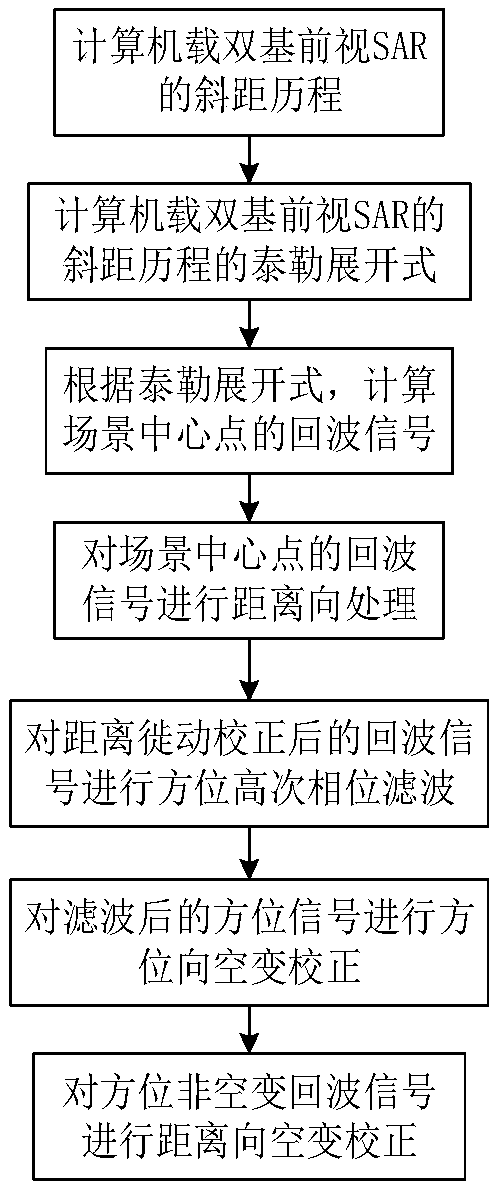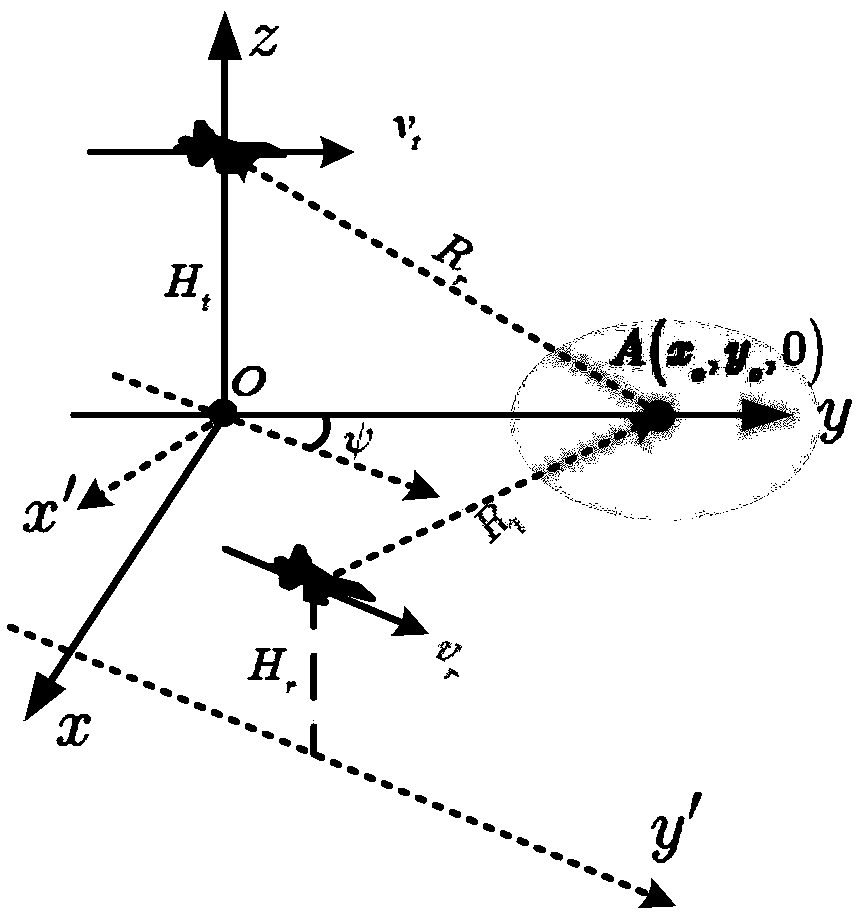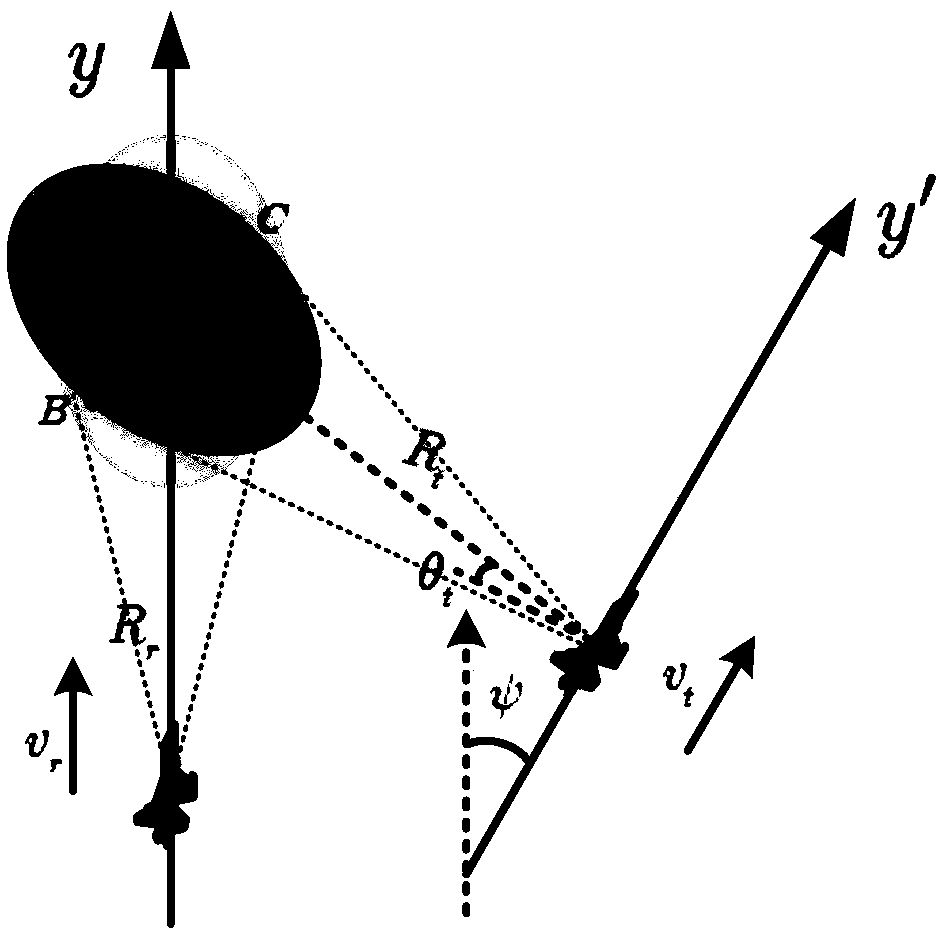Two-dimensional spatial-variant correction method for airborne double base forward looking SAR azimuth phase
A dual-base forward-looking, two-dimensional space-varying technology, applied in the field of focus processing, can solve problems such as poor phase focus effects, and achieve the effects of improving focus accuracy and improving detection and identification performance
- Summary
- Abstract
- Description
- Claims
- Application Information
AI Technical Summary
Problems solved by technology
Method used
Image
Examples
Embodiment Construction
[0035] The present invention will be further described in detail below in conjunction with the accompanying drawings and specific embodiments.
[0036] refer to figure 1 , a two-dimensional space-variant correction method for the azimuth phase of an airborne bistatic forward-looking SAR, comprising the following steps:
[0037] Step 1) Compute the slant range history R of the bistatic forward-looking SAR bf (t m ):
[0038] Step 1a) Build an airborne bistatic forward-looking SAR flight model, its structure is as follows figure 2 Shown:
[0039] Assuming that the receiver in the forward-looking receiving mode moves along the y-axis of the north sky east coordinate system xOyz established with its sub-satellite point as the origin, the velocity is v r The uniform linear motion of the receiver, the initial coordinates of the receiver in the xOyz coordinate system are (0,0,H r ), assuming that the transmitter in the side-looking illumination state moves along the y' axis in...
PUM
 Login to View More
Login to View More Abstract
Description
Claims
Application Information
 Login to View More
Login to View More - R&D
- Intellectual Property
- Life Sciences
- Materials
- Tech Scout
- Unparalleled Data Quality
- Higher Quality Content
- 60% Fewer Hallucinations
Browse by: Latest US Patents, China's latest patents, Technical Efficacy Thesaurus, Application Domain, Technology Topic, Popular Technical Reports.
© 2025 PatSnap. All rights reserved.Legal|Privacy policy|Modern Slavery Act Transparency Statement|Sitemap|About US| Contact US: help@patsnap.com



